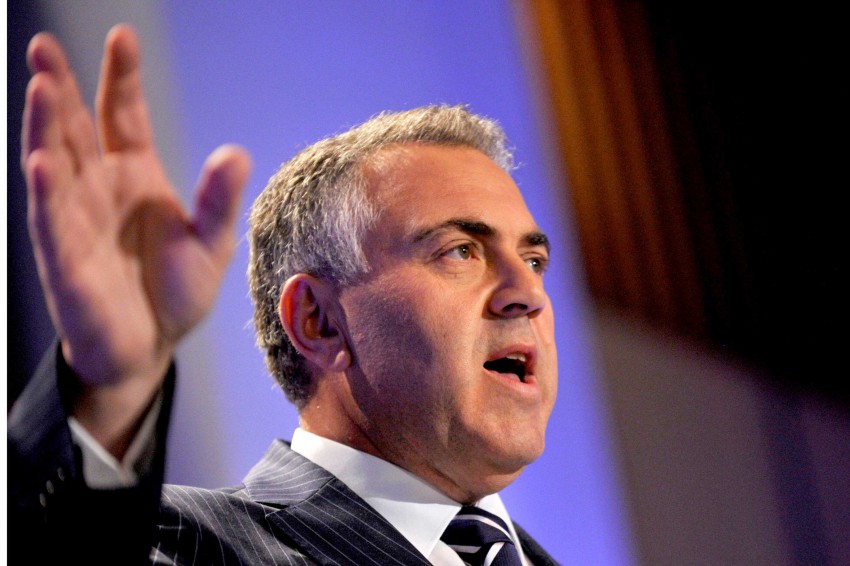Political firestorm unleashed by Australian budget

The crisis we face in Australia is not a budgetary one but a moral one as the foundations of the Australian settlement come under attack
The crisis we face in Australia is not a budgetary one but a moral one as the foundations of the Australian settlement come under attack. Austerity policies like those announced in the Federal Budget only serve to fuel rising inequality and generate great hardship for low income families and the unemployed.
Let’s be clear, a budget crisis has been manufactured to drive a radical conservative policy agenda, one that seeks to dismantle great institutions like our public health and education systems, which will be starved of the funds they need to ensure fair and decent outcomes for all Australians. In pushing policy to the extreme right in Australia we are witnessing the declaration of the very type of policy war that the Coalition accused the former government of – class war. There is no hiding from the reality that those who are harmed most by the Federal Budget are those who can least afford to be harmed. They are being damaged as part of a political strategy that seeks to propagate the lie that Australia is experiencing a Budget emergency. This is reprehensible politics divorced from fact. Australia has a AAA credit rating. At just 12 percent of GDP, Australia has among the lowest public debt levels in the OECD where the average is around 70 percent. While unemployment has risen we have gone through a period of unbroken growth that is the envy of the western world. Without counter cyclical fiscal policy in response to the GFC we would have plunged into recession. In other words, we needed to increase our public debt in the wake of the GFC to stimulate the Australian economy. Other nations chose to starve their economies of public investment and paid a heavy price for doing so – double digit unemployment and economic stagnation. Part of the politics of the Federal Budget is ;to place pressure on the state and territories to argue for an increase in the GST. Beware the great tax swindle. The Coalition is trying to beat the states and territories into submission by cutting their health and education funding by $80 billion over the next decade. But, rather than capitulate to this fiscal thuggery, they have united to condemn the cuts and demand that the Coalition relent. There is a deep class bias in the Coalition’s tax and incomes policies. They are reducing corporate tax, abolishing the mining tax and cutting benefits to the poor. Meanwhile they are undermining the foundations of egalitarianism in the nation’s public health and education systems by imposing Medicare co-payments and de-regulating university fees. Forgotten is the need to reform perverse taxation arrangements that privilege the wealthy like abolition of negative gearing, getting rid of favourable tax treatment of high income earners’ superannuation, tightening loopholes in corporate tax and taxing windfall earnings from Australia’s mineral and energy resources. Tax treatment of superannuation overwhelmingly favours high-income earners. You can get $200k in super income without paying any effective tax. Tax expenditures on super are around $32 billion at the moment and are set to rise to $45 billion by 2015-16. Concessions available to well-off retirees via super are estimated at around $27 billion. In the confected panic surrounding the aged pension (which costs around $41 billion) these costs are largely ignored. Maintaining the current arrangements for super saw wealthy retirees unaffected by the budget, but aged pensioners are estimated to lose up to 10 percent of their income. Clearly there are great inequities in operation in Australia’s taxation landscape, none of which would be improved by increasing or broadening the GST. While progressive tax reform is urgently needed this is not what the present Government has in mind. It seeks to reinforce the view that the GST is the main vehicle available to the states and territories to overcome deterioration in their revenues, a problem made worse by reductions in federal assistance. So far the Federal Budget has proved to be deeply unpopular, with the polls likely to dive for the Coalition in the months to come. They have ignited hundreds of policy flames that threaten a political firestorm and seem only to be adding further fuel to the fire. Just how much damage is done to the Coalition’s electoral prospects will become more evident over the months to come, as they are forced into deals to pass the budget through the Senate. The changes they propose so fundamentally undermine central tenets of the fair go, that they may well end up being mortally wounded by the scorching forces of nature that surround and threaten to envelop them. Associate Professor John Spoehr is the Executive Director of the Australian Workplace Innovation and Social Research Centre at the University of Adelaide